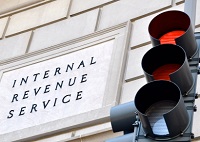In Colorado, nonprofit organizations that are exempt from federal income taxation are automatically exempt from paying Colorado state income tax—apart from any taxable unrelated business income generated. However, it sometimes comes as a surprise that exemption from sales tax is not automatic as well—it must be separately applied for at the state level, and often also at the local level. Additionally, many cities and local governments are not as generous with exemption as the federal and state government.
As background, the state of Colorado, the Regional Transportation District (“RTD”), the Scientific and Cultural Facilities District (“SCFD”), the Denver Football Stadium District (“FD”) and about 250 Colorado cities, counties, towns, and other special taxing districts impose a sales and/or use tax of some sort. In order to be exempt from such tax, an organization needs to submit an application to the appropriate jurisdiction:
State Exemption: One application to the Colorado Department of Revenue covers exemption from Colorado’s sales and use tax, as well sales and use taxes imposed by the RTD, SCFD, and FD taxing districts, any county or statutory city or town, and any home rule city that has opted to have the state collect its sales and use taxes.
This exemption covers sales to qualified charitable organizations for items used in their charitable activities. The definition for charitable organization for these purposes closely tracks the language of Section 501(c)(3). The official position of the Department of Revenue is that it has discretion to deny exemption to organizations that have a 501(c)(3) determination letter, though practically, this doesn’t appear to happen often.
The exemption also will cover infrequent sales by the charitable organization to the public. This is narrowly defined, and requires the following:
- Sales events must be limited to a total of 12 days in a calendar year;
- Funds must be retained for charitable purposes; and
- Funds raised must not exceed $25,000 in a calendar year.
Note that there are several other exemptions under state law, such as one for religious organizations and one for schools.
Local Exemption: Home rule cities set their own requirements for sales/use tax exemption, which are not necessarily consistent. As such, nonprofits may find themselves having to juggle multiple taxing jurisdictions based on operations. For example, if a nonprofit located in Denver and exempt from Denver sales tax holds a large convention in another Colorado city like Boulder, or has multiple locations, they’ll have to determine their obligations with respect to sales tax there.
In addition, cities’ requirements for exemption do not necessarily track the 501(c)(3) definition. As such, an organization exempt under 501(c)(3) that also is exempt from Colorado state sales tax may be denied exemption under a particular city’s rules. The City and County of Denver recently changed from this approach to come in line with the federal definition. Formerly, they defined a charitable organization as one operating exclusively “for the purpose of providing a gift for an indefinite number of persons who are either residents of the city or using facilities of the city on a regular basis that lessens the economic burdens of the city by making the gift to the young, aged poor, infirm or uneducated.” This change was estimated to save nonprofits between $11 million and $14 million.
It remains to be seen whether other cities will adopt Denver’s approach. In the meantime, it’s important to remember that sales tax exemption is another step-or steps—that nonprofits have to take in addition to obtaining exempt 501(c)(3) status.

